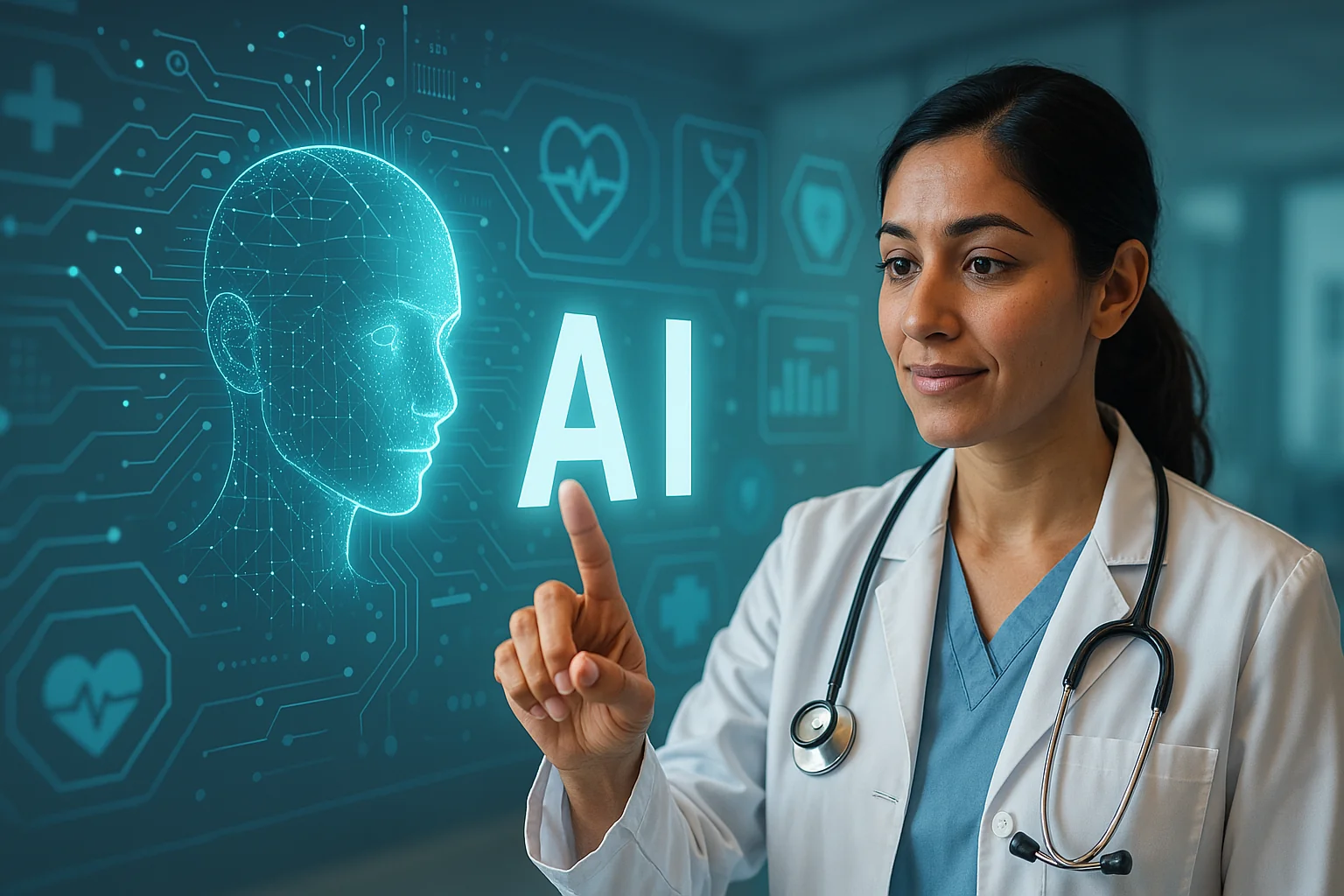A new study confirms that generative AI diagnostic accuracy now closely matches the diagnostic skills of non-specialist doctors. Conducted by researchers at Osaka Metropolitan University, the study highlights the growing potential of artificial intelligence (AI) to support healthcare—especially in areas with limited specialist access.
Generative AI in Diagnosis: How Accurate Is It?
Researchers reviewed 83 peer-reviewed studies published between 2018 and 2024. These studies examined how well large language models (LLMs), like ChatGPT, perform when diagnosing various medical conditions. On average, generative AI reached a diagnostic accuracy of 52.1%.
- Specialist physicians: Outperformed AI by 15.8%
- General doctors: Performed at a similar level to AI
These findings were shared on News-Medical.net. As a result, AI systems could play a valuable support role in diagnosis, particularly when expert help is not immediately available.
Clinical Benefits of Generative AI Diagnostic Accuracy
Generative AI offers several benefits in healthcare. For example, it can help reduce physician workload and ensure more consistent diagnostic decisions. Moreover, it supports real-time access to clinical insights in high-pressure situations.
Key potential applications include:
- Triage assistance: Helping clinicians prioritize critical cases faster
- Second-opinion tools: Supporting more confident diagnoses
- Medical education: Training students through case simulations
- Remote care: Providing diagnostic help in underserved regions
According to Medscape, hospitals are already piloting AI-assisted diagnosis in emergency settings. Early reports suggest improved diagnostic speed and reduced error rates.
Limitations of AI Diagnostic Performance in Clinical Use
However, generative AI still has limits. Some models are not transparent in how they reach conclusions. In addition, they may struggle with rare or complex conditions. Bias in training data can also affect outcomes, especially in diverse populations.
Other concerns include:
- Ethics and privacy: Patient data must be protected at all times
- Overdependence: Clinicians should avoid relying solely on AI
- Interpretability: Doctors need to understand AI recommendations clearly
Despite these concerns, experts agree that AI can complement—not replace—human judgment. When used wisely, it enhances clinical care and supports better outcomes.
The Future of Generative AI in Healthcare Diagnostics
Looking ahead, researchers hope to improve generative AI diagnostic accuracy through more diverse datasets and real-world testing. Furthermore, stronger guidelines are needed to ensure safe and equitable deployment.
In conclusion, AI tools are not just promising—they are becoming practical assets. As development continues, their role in clinical practice will likely grow, making healthcare more accessible and reliable worldwide.
Explore More : innovatemed.org


